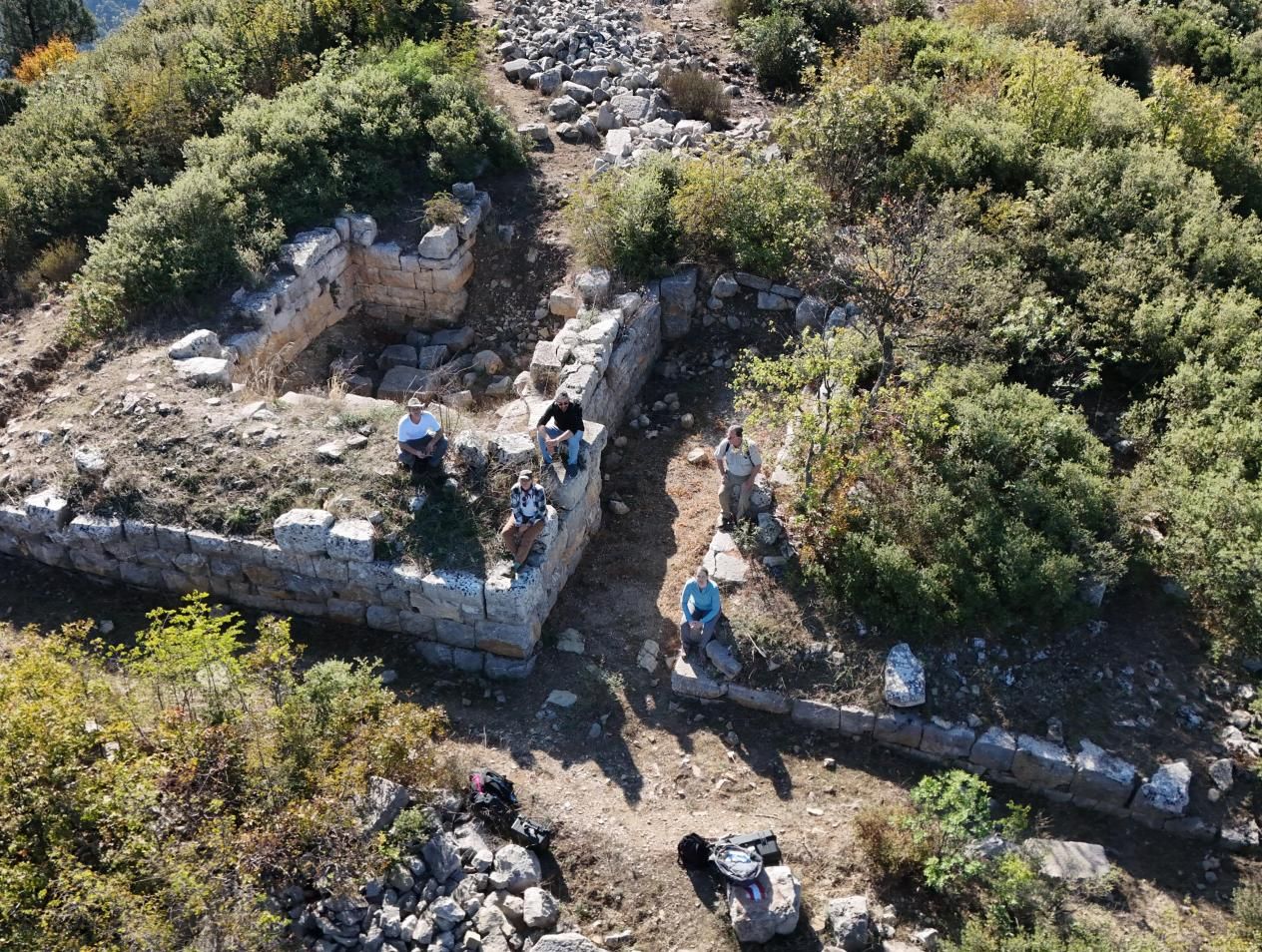Breadcrumb
Macedonian Archaeological Field Program
SUMMER 2026 DATES: May 19 - June 12, 2026 (Apply)
The US-Macedonian Archaeological Collaborative Field Program is an international collaboration between researchers in the US and Macedonia. The project focuses on the Hellenistic, or Macedonian, era and into the Roman conquest.
Our research is serving to help understand the impacts of socioeconomic and environmental change associated with governance by the wealthy Macedonian kingdom and subjugation under Roman conquest. We are investigating thriving economy and major infrastructure improvements under a Macedonian Kingdom contrasted with a highly restricted economy under Roman subjugation. We ask how these socioeconomic realities impact the use of the environment and how they are reflected in the archaeological record.
Read about the project in the news:
The US Macedonian Archaeological Collaborative Field Program is a collaboration between Macedonian archaeologists from NI Institute and Museum Bitola, PSI Institute of Old Slavic Culture - Prilep, Goce Delcev University - Stip, and archaeologists from Cal Poly Humboldt, along with visiting archaeologists from around the globe. Our research is serving to help illuminate the impacts of socioeconomic and environmental change associated with governance by the wealthy Macedonian kingdom and subjugation under Roman conquest. We ask how these socioeconomic realities impact the use of the environment and how they are reflected in the archaeological record.
The field program focuses on North Macedonia, at archaeological sites dating to and just before the Hellenistic, or Macedonian, Era (323 BCE - 30 BCE), and leading into the Roman conquest and formation of the early days of the Roman Empire (to about 100 CE).
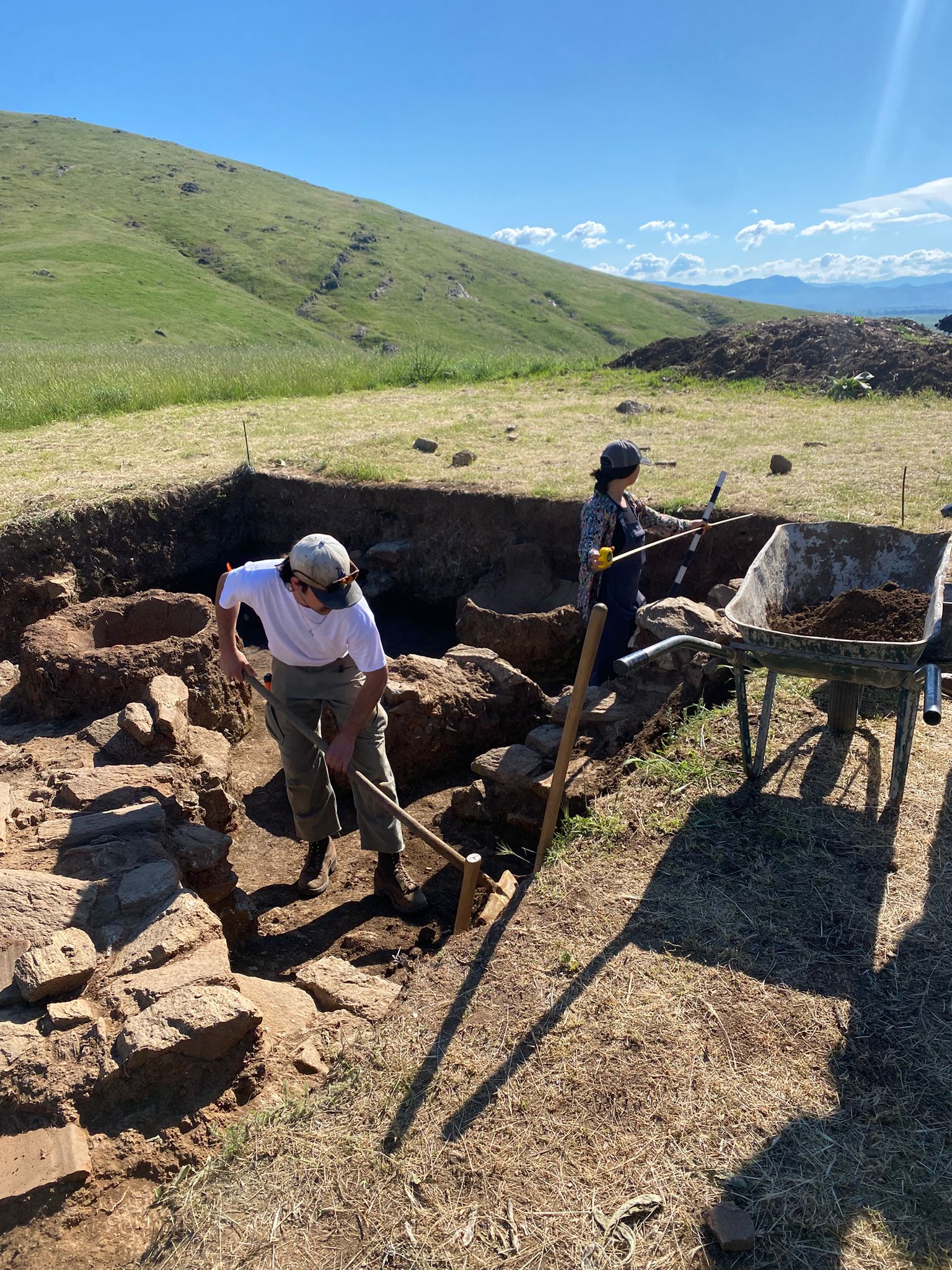
Alexander the Great was king of the ancient Greek kingdom of Macedon from 336 BCE - 323 BCE He is one of the most infamous warriors in history, having overseen conquering much of the world known to him and beyond. He spread Hellenistic culture throughout eastern Europe and Asia, while adopting many aspects of Middle Eastern and Asian cultural attributes, bringing those traditions back to Europe.
Before Alexander the Great conquered Persia in 336-323 BCE, his father Phillip II, King of Macedon conquered the Greek City-states in 359-336 BCE. Before Phillip II became King, Macedon was essentially ruled by his mother Eurydice I, Queen of Macedon from 393-369 BCE. Eurydice is the first Macedonian woman known to hold public power in eastern Europe as her husband, the King, was a relatively weak figure with little appetite or skill in ruling the kingdom.
The program currently focuses on two sites, Crnobuki and Demir Kapija. Crnobuki is a village located within ancient Upper Macedonia in the region known as Lynkestia, the birthplace of Eurydice, Alexander the Great’s grandmother. The site at Crnobuki may, in fact, be where she was born and raised.
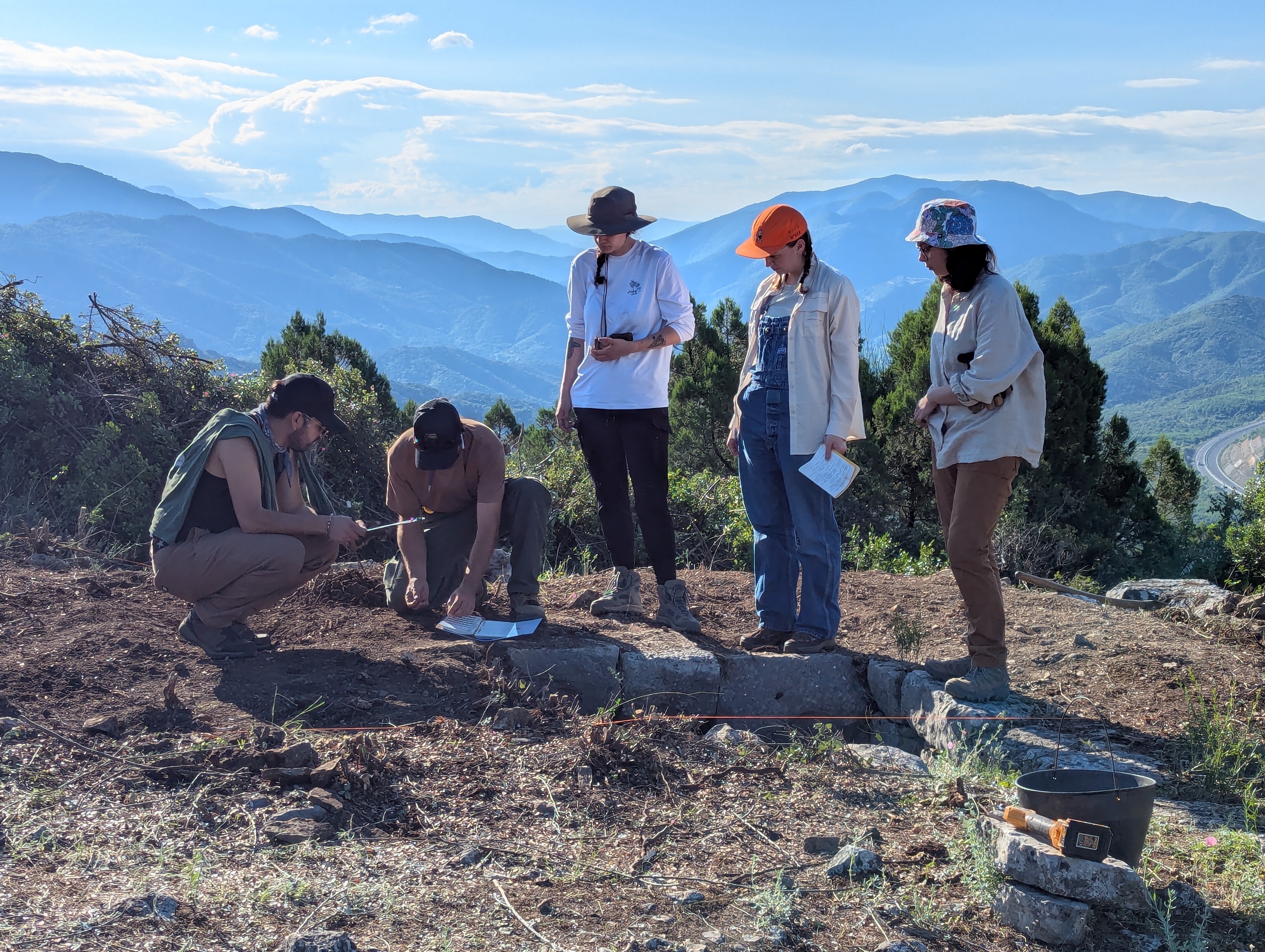
After the death of Eurydice’s grandson, Alexander the Great, Macedonia settled into a period of extreme wealth and experienced significant infrastructure improvements, a flourishing of the arts, and nearly a century of stability, 307-214 BCE. Under the rule of Phillip V, Macedonia became embroiled in their first wars with the expanding Roman Republic, 214-148 BCE. The first battle between Macedonia and Rome was fought by the Macedonians from the location at Crnobuki. Phillip V observed the Roman army from the location we are excavating!
Our research is serving to help understand the impacts of socioeconomic and environmental change associated with governance by the wealthy Macedonian kingdom and subjugation under Roman conquest. We are investigating the thriving economy and major infrastructure improvements under a Macedonian Kingdom contrasted with a highly restricted economy under Roman subjugation. We ask how these socioeconomic realities impact the use of the environment and how they are reflected in the archaeological record.
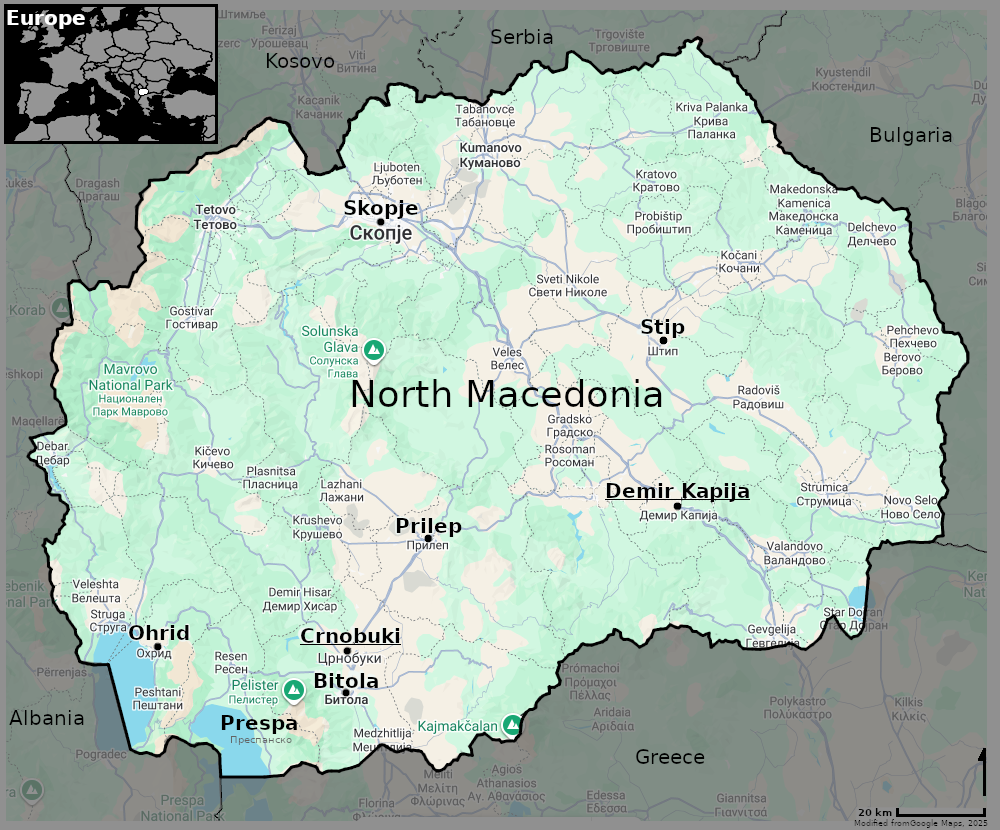
Crnobuki is a village located within ancient Upper Macedonia in the region known as Lynkestia, the birthplace of Eurydice, Alexander the Great’s grandmother. At Crnobuki, we are focusing on exploring an acropolis.
Demir Kapija, or Iron Gates, is located in a militarily strategic geography along a major river, the Vardar, it has been defended by a series of seven fortresses spanning at least 1500 years. Classical, Hellenistic, Roman, Byzantine, and Ottoman eras are all represented.
*You do not need to be a student at Cal Poly Humboldt to attend the field school*
This program will be unlike any other course you have had before. Most of the learning will take place by doing real, hands-on archaeological excavations and analysis at active international research sites! This program is an opportunity to learn archaeological methods hands-on while working on actual sites in Macedonia and learning about Macedonian history and culture! We will work near the cities of Bitola and Negotino, in the Pelagonian and Paeonian regions of North Macedonia, in Southeastern Europe.
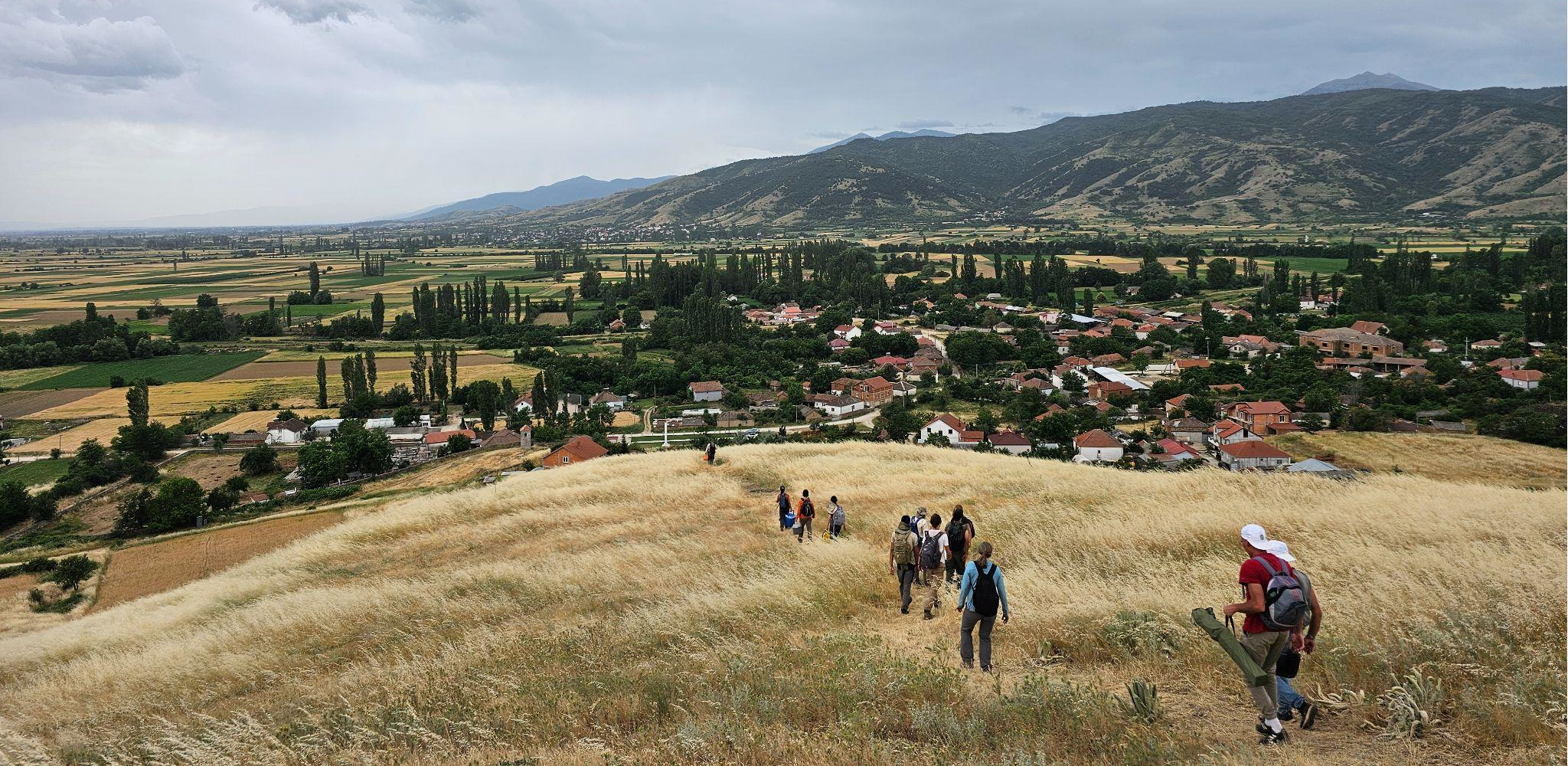
The field program involves hands-on archaeological activities at one or both of the field sites. You will spend many hours in the field taking part in excavations and analyzing artifacts in the on-site lab. There will also be field/lab lectures. Students will be immersed in Macedonian culture, living and working side by side with the people of the host country. In addition to learning and doing archaeology, you will learn about North Macedonia cultures and cultural sensitivity, among other things. You will experience Macedonian culture and history firsthand by touring historical sites in North Macedonia and Greece, and your work will contribute to the body of knowledge associated with how the peoples of the Balkan region lived throughout time and space. In these studies your contribution will reveal the relationships of living Balkan culture to those of the past, contributing to regional historical context at a global scale.
You will reflect upon and write about your experiences. Attending an archaeology field program requires physical labor, a great sense of humor, mutual respect and support of your peers, and a great attitude. The instructors and course assistant will teach you how to carry out survey, excavation, and laboratory techniques. You will be asked to put into practice everything you are learning.
COURSES/UNITS
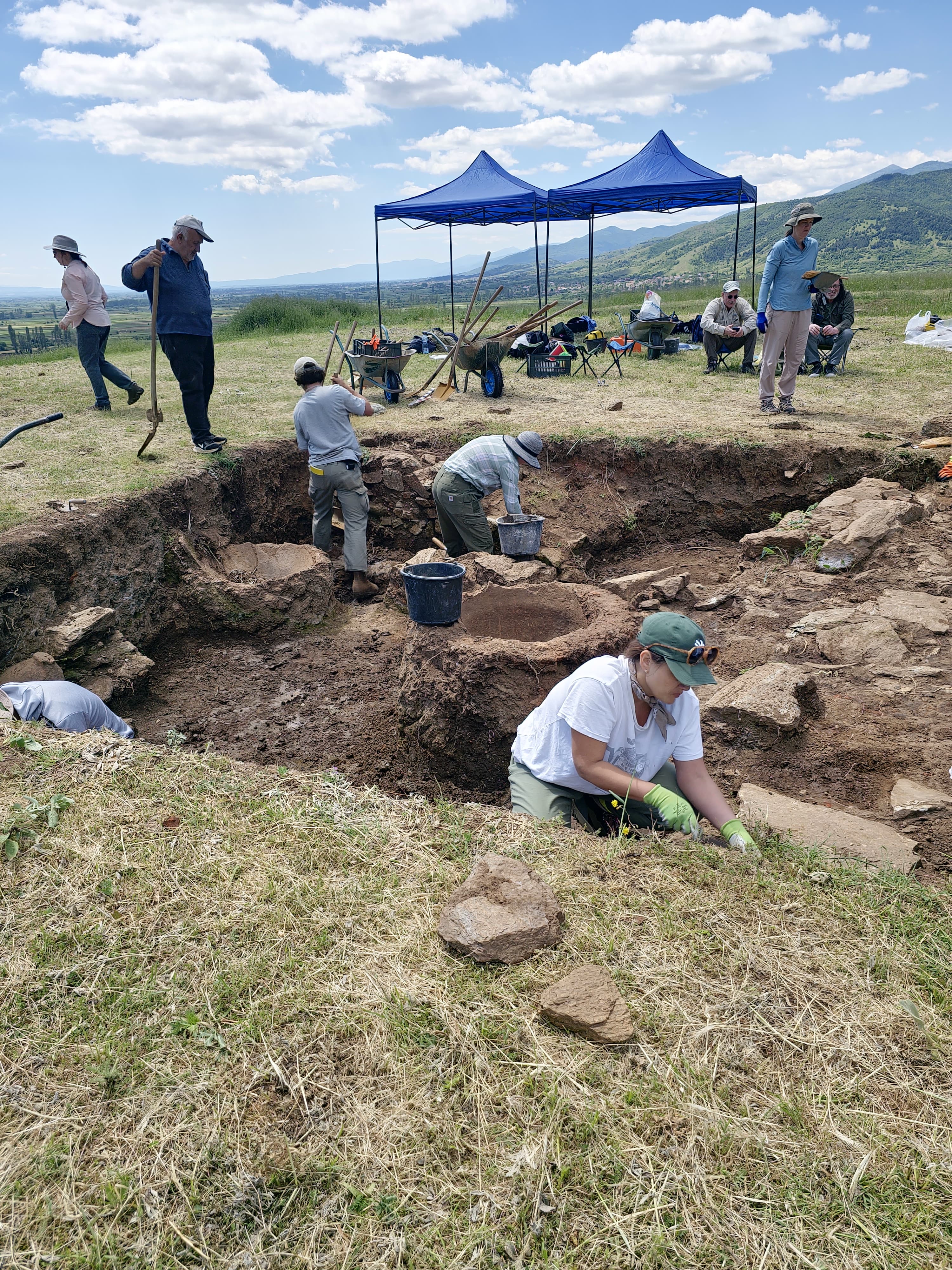
- ANTH 359, US Macedonian Archaeological Collaborative Field Program (4 units). This is the main course associated with the field school. All field school participants are enrolled in this course when they join the program. Prior to the official start date, prep work will be available online starting May 1. There will be an orientation meeting meeting (attend in person or via Zoom) on May 4 from 5:00-6:50 pm. The course then takes place in Macedonia May 19-June 12.
- ANTH 485 International Archaeology Research (2 units). This is an optional course. Students taking this course will complete a research paper related to the program along with a combination of responses to readings and/or additional lab/field hours in Macedonia.
- There are no prerequisites for these courses, and students are enrolled in them through Cal Poly Humboldt after they are accepted into the program.
- Students should contact their academic advisors to discuss how this program may count towards fulfillment of their program requirements.
DATES FOR SUMMER 2026: May 1-14 online asynchronous prep work, May 4 from 5:00-6:50 pm PST meeting (Cal Poly Humboldt or Zoom). Official course dates are May 19 - June 12 in Macedonia
- Arrival: It is recommended that students arrive at/near Macedonia at least one or two full days ahead of the start date. Many students enjoy arriving ahead and touring the region. The field school bus picks students up in Skopje, Macedonia at 8:00 am on Tuesday May 19, 2026. Skopje is the capital, which is about a 2.5 hour drive from the field sites. Students are advised to plan their flight to and from the Skopje International Airport (SKP / LWSK). Students attending the program will be provided additional pickup information.
- After the program: Bus returns students to Skopje, anticipated arrival by 12:00 noon on Friday June 12. From this point, students may continue travel independently or depart via the airport. If leaving directly after the program, students are advised to plan their flight no sooner than 2:00 pm. We recommend planning the departing flight at least a day after the program to give yourself time to sight-see.
- Any travel/activities prior to the May 19 pickup or after the June 12 drop-off is optional and not covered by program fees.
LOGISTICS
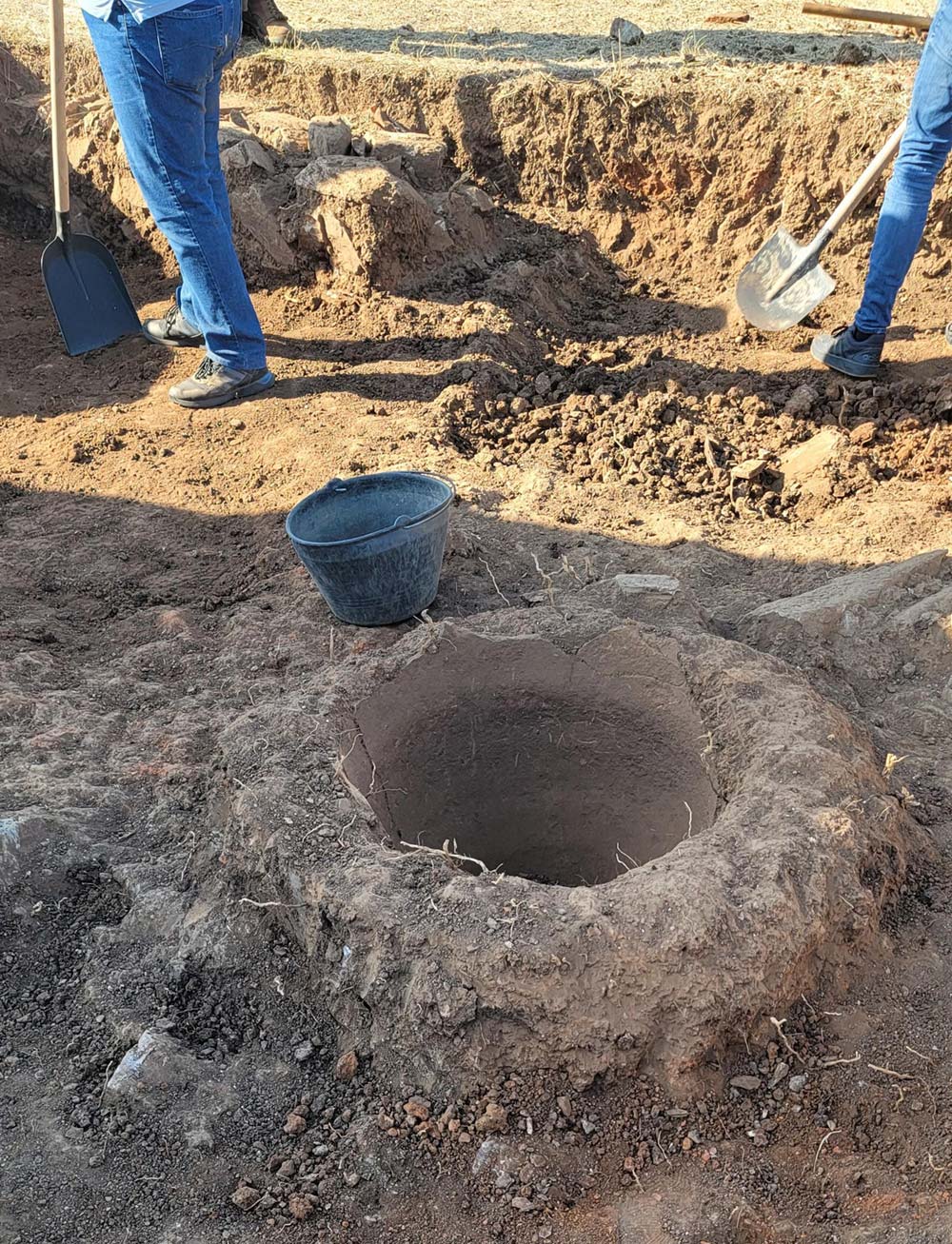
- Students in the program will be provided lodging, restroom, and shower facilities. Cell phone reception is generally good, and Internet/Wi-Fi will be intermittent.
- Meals will be provided from May 19 (upon arrival at the field site) through June 12 (prior to departing the field site).
- The field school schedule typically involves working during the day Mon-Fri on site, in the field and/or lab. Weekends include some group trips and free time.
BUDGET (preliminary)
- Program fee: Approximately $3050 (actual amount TBD). The program fee covers in-Macedonia costs between pick-up and drop-off at Skopje, Macedonia, May 19 - June 12. This includes travel from Skopje to the sites and back, lodging, and meals during the program. Students are responsible for additional costs for any choice travel, outings, and snacks, etc, before/during/after the program.
- Tuition: $300 per unit for a total of $600-$1800. The main course for the program is ANTH 359, which is 4 units ($1200). The optional additional course is ANTH 485, which is 2 units ($600). For students that prefer fewer units and do not need 6 for financial aid eligibility, with permission from faculty, it may be possible to enroll in just the 2 units ANTH 485.
- Travel to and from Macedonia: Cost varies. Students are responsible for their own travel to and from Skopje, Macedonia. Cost varies depending on time of purchase and travel choices. Flights are generally least expensive if purchased well in advance and if flying from a major airport (e.g., SFO). Flying from the East Coast is generally less expensive. There is usually an increase in price a few months beforehand, and sometimes (not always) a fall in price about 2 months ahead (use caution if waiting to see if this happens - sometimes it just keeps increasing). Specific information will be provided to attendees. Students are advised to not purchase airfare until their acceptance to the program is verified; however, keep in mind that fares may be lower with early purchase. Students are advised to purchase flight insurance; the program shall not reimburse students for airfare if for any reason the student does not attend the program or if incorrect flights are purchased prior to confirming arrival information with faculty.
- Funding: Financial aid for summer is a bit different than it is for Fall and Spring. Students typically need to be enrolled in at least 6 summer units in order to get financial aid. Students can discuss options with advisor/department chair and the Office of Financial Aid. Summer financial aid usually not dispersed until mid summer, well after program fees are due and plane tickets need to be purchased (early-mid spring). For all of these reasons, students are advised to consider planning their spring budget/aid to cover costs.
- Contact the Financial Aid office to discuss options.
- Contact the Study Abroad office for recommendations.
- Additional limited sources include:
- https://www.archaeological.org/grant/waldbaum-scholarship/
- Anthropology Department Travel Funds
APPLICATION & WAYS TO ATTEND
Applications for Summer 2026 are now open. The deadline Feb 1, 2026. Early application is recommended - seats may be filled as applications are received.
- Most people that want would like to attend the program should complete the Study Abroad Application (and reference information) linked here. This is the process for people that are students and not students at Cal Poly Humboldt - meaning anyone who wants to attend and participate in the full program. This includes new participants, previous participants seeking to return as student crew leads and/or crew leads in training, and graduate students seeking to attend for thesis research.
- Those that are seeking to participate in only part of the program may alternately completed a volunteer application and have two references fill out a recommendation form. Volunteers cannot earn units will be responsible for their own costs and logistics, which will typically not be a savings compared to program fees unless the participation is short term. Typically, volunteers will only be considered if capacity exists after other applicants are served.
- Nicolas Angeloff, Program Director, naa2@humboldt.edu
- Justin Carlson, Project Staff, Justin.Carlson@humboldt.edu
- Mark Castro, Project Staff, Mark.Castro@humboldt.edu
- Barbara Klessig, Project Staff, Barbara.Klessig@humboldt.edu
Whereas the above are primary contacts for Cal Poly Humboldt, many additional staff members from Cal Poly Humboldt, Macedonia, and beyond make this project possible!






